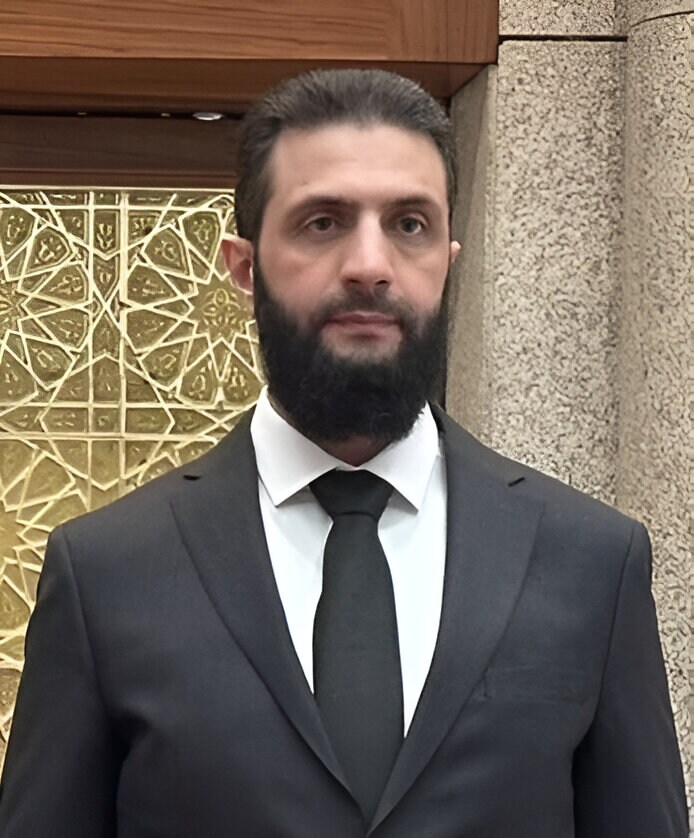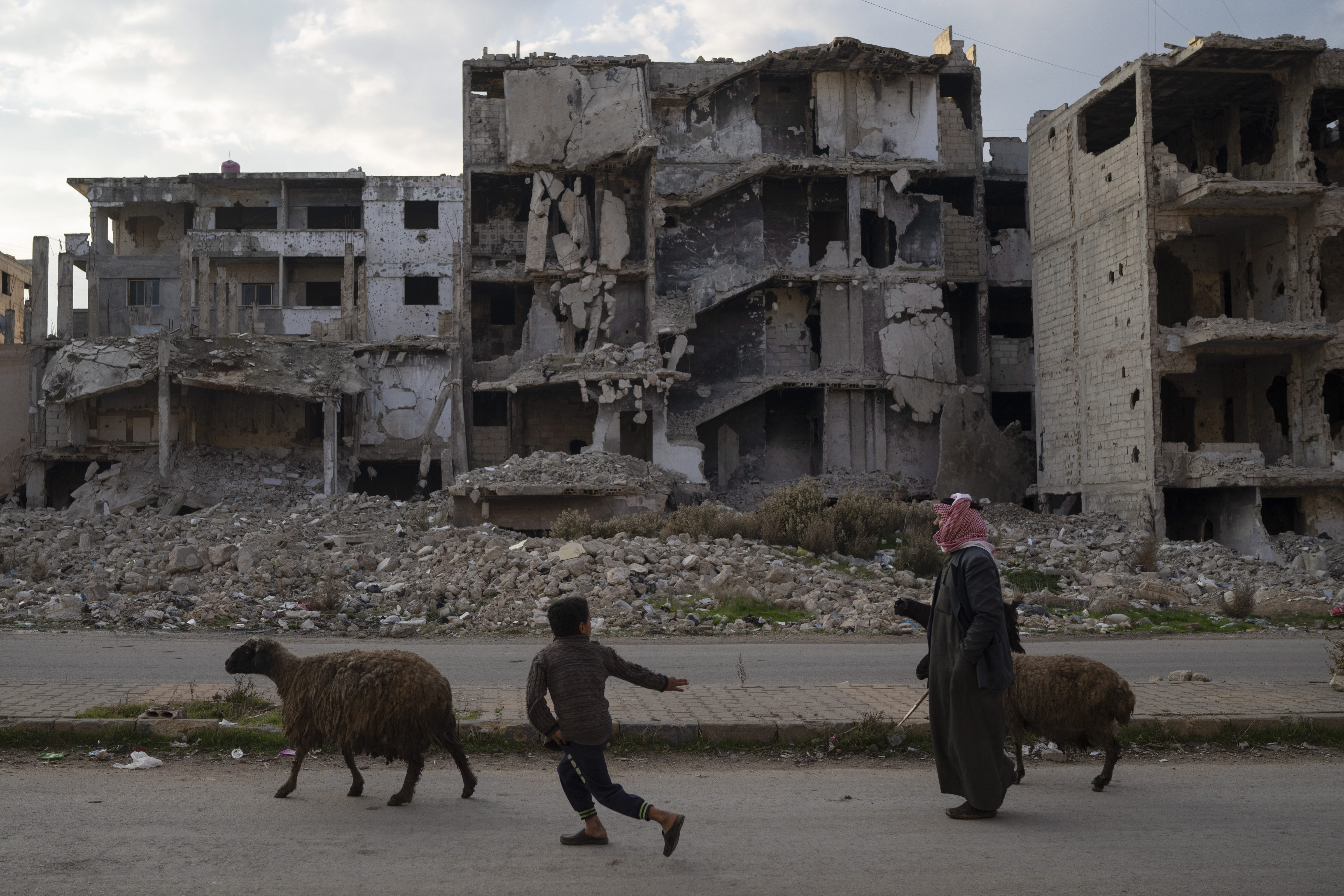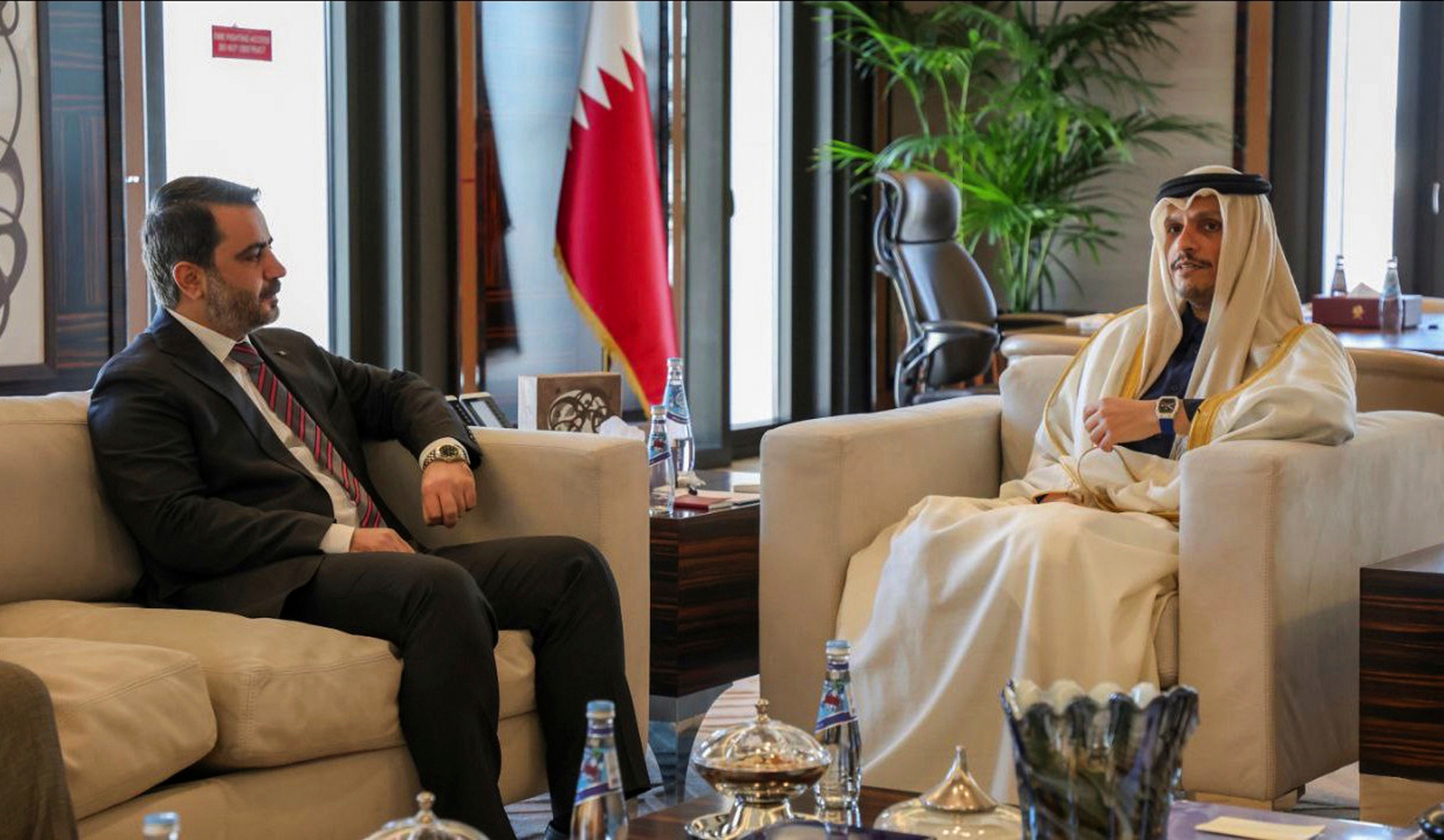
The fall of Bashar al-Assad—the Syrian president for 24 years—was quickly followed by Israel occupying some of the country's frontier territories, including the Syrian side of the strategic Mount Hermon.
The areas taken include the demilitarised portion of Golan Heights, which served as a buffer zone since the 1973 Arab-Israeli war. The strategic positions have been used by Israeli forces to carry out hundreds of strikes to destroy Syria's military infrastructure.
The response to Israeli action by Syria's new "Islamist" regime has been soft so far, with the de-facto leader Ahmed al-Sharaa stating that the country is in no position to enter into a new conflict.
"Syria's war-weary condition, after years of conflict and war, does not allow for new confrontations. The priority at this stage is reconstruction and stability, not being drawn into disputes that could lead to further destruction," al-Sharaa was quoted as saying by the state-run Syria TV on Dec. 15, 2024.
Al-Sharaa, who used the nom de guerre Abu Mohammed al-Jolani, fought Assad's Syrian Arab Forces for 13 straight years under the clarion call of 'jihad'. His organisation, Hayat Tahrir al-Sham, was once ideologically affiliated to the al-Qaeda.

Ahmed al-Sharaa, 42, is the chief of HTS and head of the Syrian transitional government. His victory over Bashar al-Assad's Syrian Arab Army marked an end to the civil war that started in March 2011. The war ended on Dec. 8, when Assad fled to Russia and his forces surrendered. (Photo source: mfa.gov.ua)
Despite the jihadist background, al-Sharaa's lack of criticism of Israel—whose military campaign in Gaza has claimed over 40,000 lives—has gained attention. Al-Sharaa's key aid and the new Damascus Governor, Maher Marwan, reportedly said the HTS does not have a problem with Israel.
“We have no fear toward Israel, and our problem is not with Israel...There exists a people who want coexistence. They want peace. They don't want disputes," the Times of Israel quoted him as saying on Dec. 27.
So, what explains the HTS' soft position on Israel?
'Pragmatic'
Al-Sharaa's approach towards Israel is "pragmatic", as Syria has seen a long period of civil war that has crippled its defence capabilities and shattered its economy, say analysts.
In 2011, before the start of the civil war, Syria's gross domestic product stood at $67.5 billion—ranking it 68th among 196 countries, and placing it with the likes of Paraguay and Slovenia, according to World Bank data. By 2024, the economy had shrunk by 85%, valued at only $9 billion.
Poverty is rampant, with 75% of the population living on less than $3.65 a day, and around 33% living on less than $2.15, as per the World Bank.
The currency has also been in a freefall. Before the war, $1 was worth around 50 Syrian pounds. Now, the same is worth more than 13,000 Syrian pounds.
The civil war also resulted in the death of over 507,000 civilians and displacement of 14 million people, according to the Syrian Observatory for Human Rights.
"There is war fatigue and economic breakdown. So, al-Sharaa's position on Israel can be said as pragmatic. The primary reason he does not want a conflict with Israel is because Syria doesn't have the military capability to take on a super power that is backed by the West. The dire straits of the Syrian economy is a secondary reason," said Sanket Joshi, research associate at Delhi Policy Group, while speaking to NDTV Profit.
HTS, which had been ruling the Syrian province of Idlib for seven years before overthrowing Assad, has aimed to evolve its image in recent years. The group first severed ties with al-Qaeda in 2016—a move aimed at establishing itself as a legitimate civic authority rather than a global jihadist outfit.
In several public appearances after the takeover of Damascus, al-Sharaa shed his military dress in favour of corporate suits. In interactions with Arab and western journalists last week, HTS officials said the goal is to build a "free market economy", which draws foreign investments.
For investments to pour in, the lifting of sanctions is essential, analysts said. "There will be a carrot-and-stick approach. All the sanctions will not be lifted in one go. The US will wait to see how the regime behaves in the period to come, and offer gradual relief. It would not want the HTS to hurt the interests of the West or Israel," Joshi said.

The United Nations High Commissioner for Refugees sought $1.78 billion to address the emergency situation in Syria in 2024. Till Oct. 31, the UN agency had received only 41% of the amount. (Photo source: AP/PTI)
Common Foe: Iran
At this juncture, both Syria and Israel see Iran and its affiliated Shia militant outfit, Hezbollah, as their biggest enemy in the region, analysts point out.
This was reflected in al-Sharaa's recent media interactions, where his tone of criticism of Iran was far more sharper as compared to his condemnation of Israel's takeover of Mount Hermon.
"By removing Iranian militias and closing Syria to Iranian influence, we've served the region's interests," al-Sharaa told Arabic-language Asharq Al-Awsat newspaper on Dec. 20. He added that previously, under Iran's influence, Syria had turned into a platform to "spread wars, and destabilise the Gulf with drugs".
One of the reasons why the HTS was able to overthrow Assad at lightning speed was the destruction of Hezbollah by Israel, in the military campaign launched over the past few months. This, combined with the entanglement of Russia—a key backer of Assad—in the Ukraine war, provided an opening for the Syrian rebels to topple the regime.
There is no doubt that the regime change in Syria "had the blessings" of the US, which is the main benefactor of Israel in the region, and also an arch-enemy of Iran, Joshi noted.
Although Syria and Israel share a common enemy, there will be no overt engagement between the two countries, the researcher said. "There could be some tacit understanding. But at best, it could be similar to the kind of relation that exists between Saudi Arabia and Israel."
The recent statements by HTS officials does indicate they are "soft" on Israel and bent on "opposing the Iranian Axis of Resistance", senior Iranian journalist Fereshteh Sadeghi told NDTV Profit.
This approach, however, raises questions on the campaign they launched against Assad in the name of religion, she said. "For years, they accused Iran and its Shia allies of acting in cahoots with Israel and not really fighting it. But now, we can see that Iran has lost several of its military leaders in the fight against Israel, whereas the Syrian rebels could hardly condemn the Israeli aggression."
"Let's not forget that the HTS is an umbrella body covering various radical Salafi groups. There are jihadis from Turkistan, Xinjiang, and from some Arab countries as well. In one way or another, they will oppose him (al-Sharaa) at some juncture over (his approach on Israel)," Sadeghi added.
Based on the common enmity of Iran, the next phase of Israel and Syria's relationship could be "based on a sort of armistice but nothing more than that", she stressed.

Israeli army armored vehicles block a road leading to the town of Quneitra, Syria, Sunday Jan. 5, 2025. (Photo source: AP/PTI)
Arab, Turk Influence
With Assad's fall, Syria has walked out from the Iranian Axis of Resistance—the Iran-led group of Hezbollah, Yemen's Houthi and Iraq's Shia militias—which is driven by the ideology to oppose the US, its Western allies and Israel.
This means that Syria would be aligned with the Gulf states and Turkey—the major Sunni powers of the region—who share strategic ties with the West, Sadeghi said.
On Israel, they would toe the line of the Arab states and Turkey, who in turn have done little to oppose the US' unhindered support to the Israeli military campaign in Gaza, the Tehran-based journalist added.
One of the reasons why there would be no flare-up between Israel and Syria is "because stability matters to Turkey, Saudi Arabia, the UAE and other Gulf nations", Joshi said.
"Saudi Arabia and UAE are pursuing the modernisation of the Arab world. And they want the Syrian regime to be in line with their worldview. They want a new Middle East, that is in line with their massive economic plans. They would not want Syria to enter into in any new conflict. Also, they want to curb Iran's influence in the region, which makes Syria's stability even more crucial," he underlined.

This photo released by the Syrian official news agency SANA, shows Syrian Foreign Minister Asaad al-Shibani, left, meeting with Qatari Prime Minister and Foreign Minister Mohammed bin Abdulrahman Al Thani, in Doha, Qatar, on Jan. 5, 2025. (Photo source: AP/PTI)
Essential Business Intelligence, Continuous LIVE TV, Sharp Market Insights, Practical Personal Finance Advice and Latest Stories — On NDTV Profit.





















